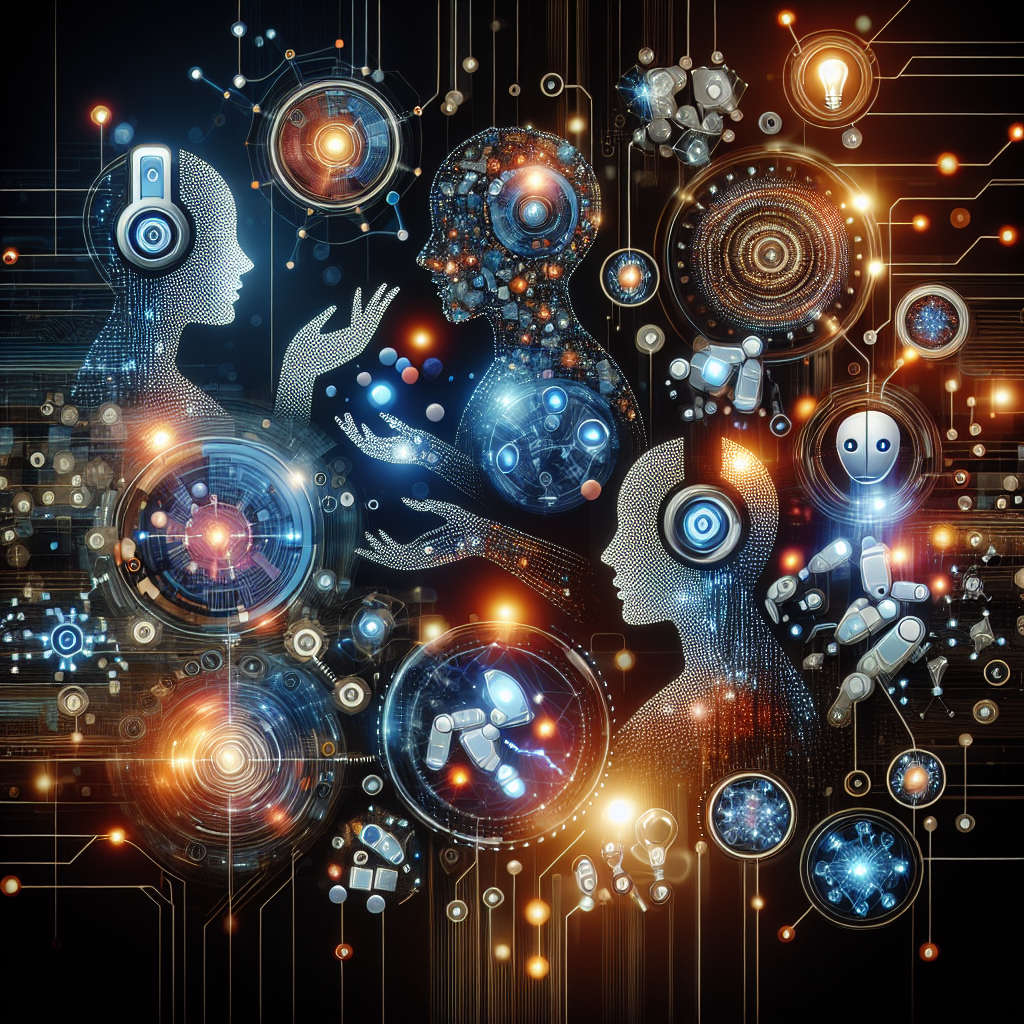Artificial Intelligence (AI) has been making great strides in recent years, and one of the most exciting applications of AI technology is the development of chatbots and virtual assistants. These intelligent systems are designed to interact with users in a natural, conversational manner, and their ability to understand and respond to human language is made possible through Natural Language Processing (NLP) technology. In this article, we will explore the impact of NLP on chatbots and virtual assistants, and how this technology is shaping the future of customer service, business productivity, and user experience.
Understanding NLP
Natural Language Processing is a branch of AI that focuses on the interaction between computers and human language. It involves the development of algorithms and models that enable computers to understand, interpret, and respond to natural language input. NLP allows machines to analyze and derive meaning from human language in ways that were previously thought to be exclusive to human intelligence.
With the help of NLP, chatbots and virtual assistants are able to process unstructured data, such as text and speech, in order to provide intelligent responses and perform tasks. NLP enables these systems to understand the nuances of human language, including slang, colloquialisms, and context, thereby improving the accuracy and effectiveness of their interactions with users.
Enhanced User Experience
The integration of NLP into chatbots and virtual assistants has significantly improved the user experience. By understanding the natural language input of users, these intelligent systems are able to provide more relevant and personalized responses, leading to a more engaging conversational experience. NLP allows chatbots and virtual assistants to comprehend user intents and extract key information from their messages, which in turn enables them to offer tailored solutions and recommendations.
Moreover, NLP-equipped chatbots and virtual assistants are capable of engaging in meaningful dialogue, understanding user emotions, and adapting their responses based on the context of the conversation. This level of conversational intelligence enhances user satisfaction and fosters stronger connections between users and AI-driven interfaces.
Improving Customer Service
NLP has revolutionized the field of customer service by enabling chatbots to handle a wide range of customer inquiries and issues. These intelligent systems are now capable of understanding and resolving customer queries in a natural and efficient manner, thereby reducing the need for human intervention and improving the overall efficiency of customer support operations.
Through the use of NLP, chatbots can analyze and understand customer feedback and sentiment, identify recurring issues, and provide relevant information or assistance. This not only enhances the speed and accuracy of customer service interactions, but also leads to higher customer satisfaction levels. Additionally, NLP-powered chatbots can learn from past interactions and continuously improve their knowledge and understanding of customer queries, resulting in more effective and personalized support experiences.
Business Productivity and Automation
Chatbots and virtual assistants equipped with NLP capabilities are also transforming the way businesses operate by automating various tasks and processes. These intelligent systems are capable of understanding and processing complex commands, performing data analysis, and executing routine operations, thus freeing up human employees to focus on higher-value tasks.
Through NLP, chatbots can handle a wide range of business functions, including scheduling appointments, managing workflows, providing information and updates, and facilitating internal communication. By streamlining these processes, NLP-powered chatbots and virtual assistants are driving operational efficiency and productivity gains across organizations.
Conclusion
The impact of NLP on chatbots and virtual assistants is undeniable, and the potential for further advancements is vast. NLP technology has transformed these intelligent systems into powerful tools for improving user experience, enhancing customer service, and driving business productivity. As NLP continues to evolve, it is likely that chatbots and virtual assistants will become even more sophisticated in their understanding and use of natural language, further blurring the lines between human and machine interaction.
Frequently Asked Questions
What is NLP?
Natural Language Processing (NLP) is a branch of artificial intelligence that focuses on the interaction between computers and human language. It involves the development of algorithms and models that enable computers to understand, interpret, and respond to natural language input.
How does NLP impact chatbots and virtual assistants?
NLP enables chatbots and virtual assistants to understand and respond to human language in a natural, conversational manner. This technology allows these intelligent systems to process unstructured data, such as text and speech, in order to provide intelligent responses and perform tasks.
What are the benefits of NLP in chatbots and virtual assistants?
NLP enhances the user experience by enabling more relevant and personalized responses, improving customer service by handling a wide range of inquiries and issues, and driving business productivity through task automation and process streamlining.
